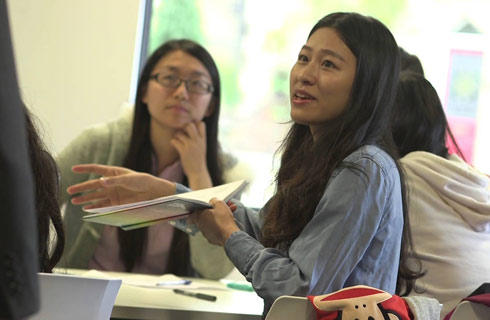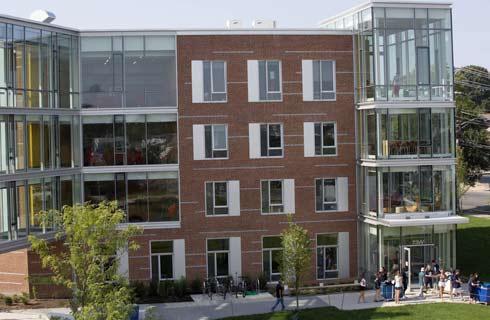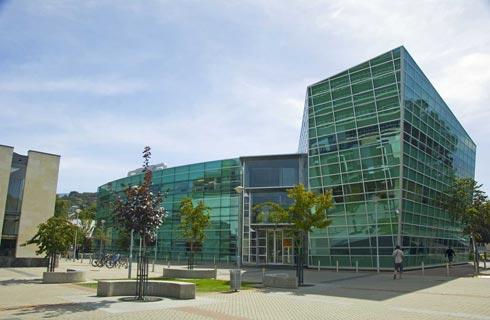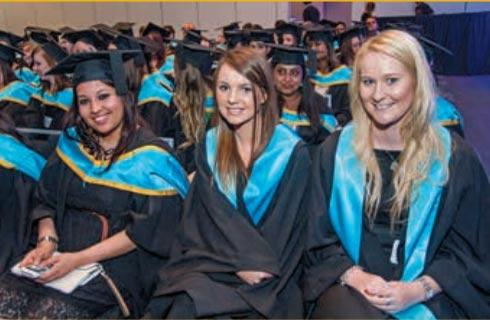文学哲学博士
Doctor of Philosophy in Literature

学历文凭
Ph.D.

专业院系
Literature

开学时间

课程时长

课程学费

国际学生入学条件
Student must have a four-year bachelor's degree at an English-speaking institution.
English Language Testing
For those choosing to take the TOEFL, a minimum score on the paper-based TOEFL of 550, or 220 on the computer-based test, or 83 on the internet-based test is required for admission.
For those choosing to take the IELTS, a minimum overall score of 7 from the IELTS test is required for admission.
IDP—雅思考试联合主办方

雅思考试总分
7.0
- 雅思总分:7
- 托福网考总分:83
- 托福笔试总分:550
- 其他语言考试:NA
CRICOS代码:
申请截止日期: 请与IDP联系 以获取详细信息。
课程简介
The Literature Department fosters innovative and experimental work across historical periods, languages, approaches, and media. Our graduate curriculum is designed to give students maximum flexibility in constructing their fields of research and to provide exposure to cultural production and theoretical work that is global in scope. True to the department's history of innovationit was among the first literature departments in the US to offer emphases in World Literature and Cultural Studies and Pre- and Early Modern Studiesthe department offers a Ph.D. concentration in Creative/Critical Writing that crosses the boundary between creative work and criticism.<br><br>Students emerge from the graduate program with a distinctive intellectual and pedagogical flexibility. Current departmental strengths include empire, race, and colonial/postcolonial studies, gender and sexuality studies, environmental humanities, Mediterranean studies, Jewish studies, transatlantic/oceanic studies, posthumanism and animal studies, speculative fiction, science/technology studies, creative practice, critical theory, and digital humanities/new media. The department offers a designated emphasis for graduate students from other departments, while individual Literature faculty lead several research clusters of faculty and graduate students, including: Making Sense of Memory, Memory of Forgotten Wars, and Speculatively Scientific Fictions of the Future.<br><br>Graduate study in Literature includes Ph.D. and free-standing M.A. programs. M.A. students typically take two years to complete the degree, pursuing coursework alongside Ph.D. students, and are well prepared to continue in a doctoral program elsewhere. Normative time for the Ph.D. is seven years, with graduates going on to teach at institutions of higher learning across the world. Ph.D. students are required to be able to read proficiently in at least two languages integral to their intellectual work, one of which may be English<br><br>The UC Santa Cruz doctoral program in literature offers an innovative multilingual and multidisciplinary approach to literary studies, involving the use of more than one language literature. The program is relatively small, and students work closely with faculty throughout their graduate careers. They are encouraged to take advantage of the rich array of intellectual and cultural events, research clusters, and lectures offered on campus.<br><br><br>The doctoral program combines critical and independent thought with global perspectives. Working across linguistic, national, and period boundaries, students blend critical approaches, literary traditions, and/or cultural archives in comparative and interdisciplinary projects.<br><br><br>A Creative/Critical Writing concentration within the Ph.D. program is available, for which prospective students apply during the admissions process. Creative/Critical applicants submit additional creative writing samples of poetry, prose fiction, creative nonfiction or hybrid/cross genre. Students in the Creative/Critical concentration complete all the requirements for the literature Ph.D. with the addition of a creative/critical degree component in the form of coursework, original creative work with a critical introduction and, if desired, work in poetics, translation, form and/or critical writing focused on creative practices.<br><br><br>Students may apply for a designated emphasis on the literature doctoral diploma in programs and departments such as Critical Race and Ethnic Studies, Education, Feminist Studies, History of Consciousness, Latin American and Latino Studies, Philosophy, Politics, Sociology, and the History of Art and Visual Culture. Applications and requirements are available at the respective department offices.
相关申请
 预科
预科 奖学金
奖学金 实习机会
实习机会 在校学习
在校学习 跨境学习
跨境学习 校园授课-线上开始
校园授课-线上开始 在线/远程学习
在线/远程学习
开学时间&学费
学费信息仅供参考,请与IDP联系以获取详细信息
| 开学时间 | 时长 | 学费 | 地点 |
|---|
学校排名

世界排名167
数据源:
泰晤士高等教育世界大学排名
本校相关课程

数学哲学博士
学历文凭
Ph.D.
开学日期
课程费用总额


Doctor of Philosophy in Chemistry
学历文凭
Ph.D.
开学日期
课程费用总额


应用数学哲学博士
学历文凭
Ph.D.
开学日期
课程费用总额


Doctor of Philosophy in Sociology
学历文凭
Ph.D.
开学日期
课程费用总额


Doctor of Philosophy in Psychology
学历文凭
Ph.D.
开学日期
课程费用总额


政治哲学博士
学历文凭
Ph.D.
开学日期
课程费用总额










 美国
美国
